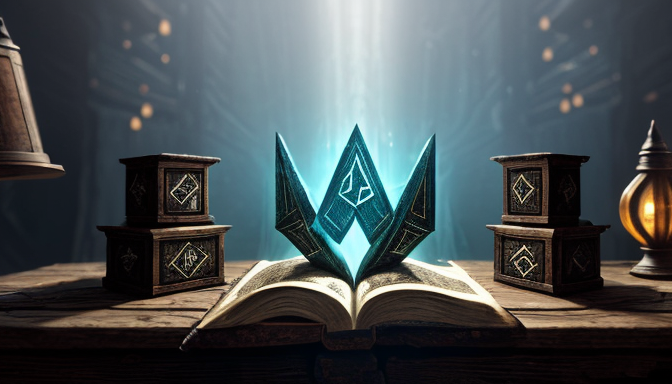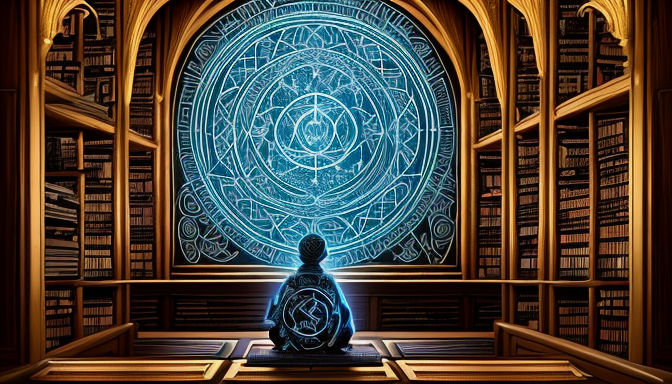Arcane lore serves as the backbone of any magical narrative, shaping not only the world but also the characters that inhabit it. Imagine a realm where magic flows like a river, with characters diving into its depths to uncover secrets that define their very essence. From soft magic systems, where the rules are fluid and mysterious, to hard magic systems, which are governed by strict laws and limitations, the way magic is portrayed can significantly influence character motivations and decisions.
In many stories, the understanding of arcane traditions and spell classifications can lead to profound character growth. For instance, a character who starts with a basic grasp of magic may evolve into a master sorcerer, facing challenges that test their knowledge and moral compass. This journey is not just about learning spells; it’s about discovering oneself through the trials and tribulations that come with wielding such power.
Furthermore, the impact of arcane lore extends to the relationships characters forge along the way. The bonds formed through shared magical experiences can lead to rich narratives filled with conflict, camaraderie, and betrayal. Ultimately, the integration of arcane lore into character development not only enhances personal arcs but also creates a dynamic tapestry that captivates the audience, making them invested in the characters’ journeys.
Understanding Arcane Lore
When we dive into the realm of arcane lore, we uncover a treasure trove of mystical knowledge that shapes the very fabric of fictional worlds. Imagine a universe where magic isn’t just a flashy light show, but a complex system that influences every character’s journey. This is where the distinction between soft and hard magic systems comes into play. Soft magic systems offer a sense of wonder and mystery, often leaving the rules ambiguous, while hard magic systems provide clear guidelines and limitations, making the magic feel more tangible.
In many stories, magic is classified into various spell categories, each with its own unique characteristics. For instance, spells can be categorized as:
- Elemental Spells: Manipulating fire, water, earth, or air.
- Illusion Spells: Creating deceptive images or sounds.
- Healing Spells: Restoring health and vitality.
But arcane lore goes beyond just spells and categories; it encompasses the traditions and rituals that characters engage in. These practices often reflect their culture, beliefs, and even their personal struggles. For example, a character raised in a society that reveres ancient magical traditions may approach their powers with a sense of responsibility and reverence, while another from a more reckless background might wield their magic with abandon. This interplay of backgrounds and beliefs not only enriches the characters but also deepens the narrative, drawing readers into a world where every spell cast carries weight and significance.

Impact on Character Arcs
When we dive into the world of storytelling, the impact of arcane lore on character arcs is nothing short of transformative. Imagine a character who starts as a mere novice, grappling with the basics of magic, only to evolve into a formidable sorcerer. This journey is fueled by their understanding of magical systems—from soft magic, characterized by its mysterious and often undefined rules, to hard magic, where the mechanics are clear and structured. Each type shapes a character’s motivations and decisions, creating rich narratives.
Consider the different spell classifications that characters might encounter. For instance, a character who specializes in elemental spells may face unique challenges that test their resolve and adaptability. These challenges can lead to profound personal growth and conflict, as they must confront not only external foes but also their own limitations. The arcane traditions they follow can further complicate their paths, as loyalty to a certain school of magic may pit them against others with contrasting beliefs.
Ultimately, arcane lore serves as a catalyst for character development. It propels characters into situations that force them to confront their fears and desires, leading to significant growth. As they navigate the complexities of their magical abilities, they also explore deeper themes of identity, power, and responsibility. This interplay between magic and character arcs not only enriches the narrative but also keeps the audience on the edge of their seats, eager to see how each character will evolve.
Frequently Asked Questions
- What is arcane lore?
Arcane lore refers to the mystical knowledge and practices that shape a character’s abilities and worldview. It’s like the secret recipe that makes a character unique, influencing their actions and decisions throughout the story.
- How does arcane lore impact character development?
Arcane lore significantly influences character arcs by driving personal growth, creating conflicts, and shaping relationships. It adds depth, making characters relatable and their journeys more engaging for the audience.
- Can arcane lore affect the plot?
Absolutely! The integration of arcane lore can serve as a catalyst for the plot, introducing twists and challenges that characters must navigate, ultimately enriching the narrative and keeping readers on the edge of their seats.
- Is arcane lore only for fantasy stories?
While it’s most commonly found in fantasy genres, elements of arcane lore can be adapted to various storytelling styles, adding a layer of intrigue and complexity that resonates with readers across different genres.

Recent Comments